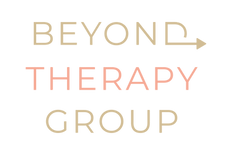July 4, 2025
What Is Grief Counseling? Techniques and How It Helps

Grief is one of life’s most profound and painful emotional experiences. Whether it stems from the death of a loved one, a divorce, job loss, miscarriage, or another major life shift, grief affects each person differently and deeply. While grieving is a natural and necessary process, some people find themselves feeling stuck, overwhelmed, or isolated in their pain.
That’s where grief counseling comes in. Far from “fixing” grief, this specialized form of therapy is designed to support individuals as they process loss, make meaning of their experience, and begin to rebuild life with compassion and resilience.
At Beyond Therapy Group, we believe healing doesn’t mean forgetting it means learning how to carry your grief with strength and grace. Let’s explore what grief counseling is, how it works, and how it can help you or someone you love.
What Is Grief Counseling?
Grief counseling, also known as bereavement counseling, is a form of psychotherapy specifically designed to help people cope with the emotional, psychological, and sometimes physical impact of loss.
It offers a safe, supportive space to:
- Express feelings like sadness, anger, guilt, or confusion
- Understand and normalize your emotional responses
- Navigate difficult anniversaries, holidays, and life transitions
- Address any unresolved issues with the person or situation you’ve lost
- Develop healthy coping strategies for moving forward
While time can soften grief’s edges, counseling can offer intentional tools, language, and space for healing that time alone cannot.
Common Types of Loss Addressed in Grief Counseling
Grief counseling isn’t just for death-related loss. People seek this support for a wide range of experiences, including:
- The death of a partner, child, parent, or friend
- Miscarriage, stillbirth, or infertility
- Divorce, separation, or the end of a significant relationship
- Loss of a job or career identity
- Declining health or a chronic diagnosis
- Loss of a home, pet, or sense of identity
Some people also experience anticipatory grief, especially when a loved one is terminally ill or during prolonged caregiving situations. Counseling can help before the loss actually occurs.
How Does Grief Counseling Help?
Grief counseling helps by creating a space where your emotions are valid, welcomed, and explored not avoided or rushed.
Here are a few key ways it provides healing:
Validation of Your Unique Grieving Process
There’s no “right way” to grieve. Some people cry every day. Others feel numb. Some swing between sadness and laughter. Grief counseling helps normalize these responses and gives you permission to grieve on your own terms.
Safe Emotional Expression
Many people feel pressure to “stay strong” or hide their pain. Counseling offers a confidential space to cry, vent, explore fears, or speak to the person you’ve lost without judgment.
Meaning-Making and Integration
Therapists help clients find meaning in their loss not in a superficial or spiritual sense, but through narrative therapy, legacy-building, and exploration of identity after the loss.
Coping Skills and Rituals
Counseling offers tools for navigating emotional triggers, difficult dates, and everyday functioning. Therapists may also help clients develop personal rituals that honor the person or life they’ve lost.
Preventing Complicated Grief or Depression
When grief becomes stuck persistent, overwhelming, or impairing it may lead to what’s known as Prolonged Grief Disorder (PGD) or trigger depression and anxiety. Early support through grief counseling can help prevent these more serious concerns.
Techniques Used in Grief Counseling
Grief counseling is not one-size-fits-all. At Beyond Therapy Group, our clinicians draw from a variety of therapeutic techniques, depending on the client’s needs and background.
Talk Therapy (Supportive Counseling)
A foundational approach, talk therapy allows clients to share stories, memories, and feelings in a calm, compassionate space. This non-directive method is often where the healing begins.
Cognitive Behavioral Therapy (CBT)
CBT helps clients identify and challenge unhelpful beliefs such as guilt (“I should have done more”) or hopelessness. It supports restructuring thoughts that hinder the healing process.
Mindfulness and Grounding
Mindfulness practices can anchor individuals experiencing intense waves of grief. Techniques include breathing exercises, body scans, and present-moment awareness.
Narrative Therapy
This involves helping clients tell the story of their loss not to dwell on pain, but to make meaning, clarify values, and imagine a life where grief coexists with growth.
Complicated Grief Therapy (CGT)
For those experiencing prolonged or traumatic grief, CGT offers a structured, evidence-based approach to target avoidance behaviors, restore functioning, and rebuild hope.
Art and Expressive Therapies
Creative outlets like journaling, drawing, or collage can help people access emotions beyond words, especially when loss is too raw to articulate.
When Should Someone Seek Grief Counseling?
While grief is a natural part of life, there are times when extra support becomes essential. You or a loved one may benefit from counseling if you:
- Feel “stuck” in grief months or years after the loss
- Struggle with sleep, appetite, or concentration
- Experience intense guilt, anger, or self-blame
- Avoid reminders of the loss to an extreme degree
- Feel isolated, emotionally numb, or hopeless
- Have thoughts of self-harm or feel life is no longer worth living
- Are navigating a sudden, traumatic, or complicated loss
There’s no timeline or threshold you don’t have to wait until things feel “bad enough.” If you’re wondering whether grief counseling could help, that alone may be your answer.
FAQs About Grief Counseling
- Is grief counseling only for people who’ve lost someone to death?
No. Grief counseling supports any form of meaningful loss, including divorce, miscarriage, illness, or job loss. Emotional pain doesn’t need to be “justified” to deserve support. - How long does grief counseling take?
It varies widely. Some people benefit from a few sessions, while others may work with a therapist for several months. There is no “correct” timeline for healing. - Will a therapist try to push me to move on?
Absolutely not. A skilled grief therapist will meet you where you are, allowing space for your pain while helping you build the tools for eventual reintegration not forced “closure.” - What if I’m not ready to talk yet?
That’s okay. Therapists can start slowly, using gentle prompts or creative methods to explore your experience in a way that feels safe. - Can grief cause physical symptoms?
Yes. Grief can manifest in the body fatigue, headaches, stomach issues, and chest tightness are common. Grief counseling addresses both the emotional and physical weight of loss.
Healing with Support: Grief Counseling at Beyond Therapy Group
Grief may be universal, but it is also deeply personal. At Beyond Therapy Group, we understand that every loss carries its own story and every grieving heart needs something a little different.
Our licensed therapists offer compassionate, individualized grief counseling that honors where you are and gently helps you move forward. Whether you’ve lost a loved one, are grieving a major life transition, or simply feel overwhelmed by sadness you can’t name you don’t have to go through it alone.
We’re here to walk beside you with empathy, evidence-based care, and respect for your journey.
Ready to take the first step?
Contact us today to schedule a confidential consultation and discover how grief counseling can support your healing.
Recent Posts
